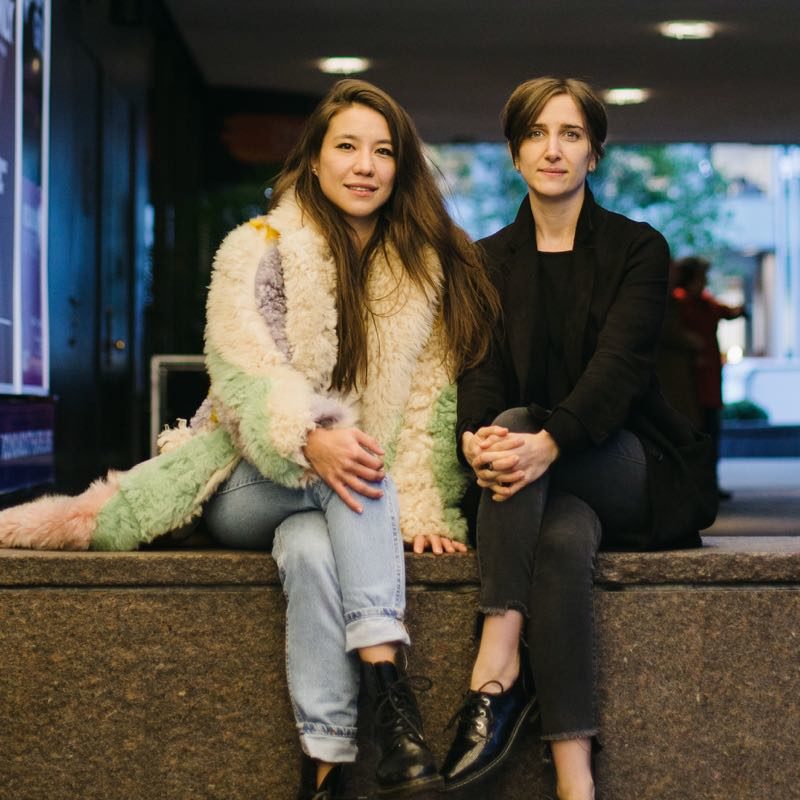Usual Girls: An Interview with Ming Peiffer and Tyne Rafaeli
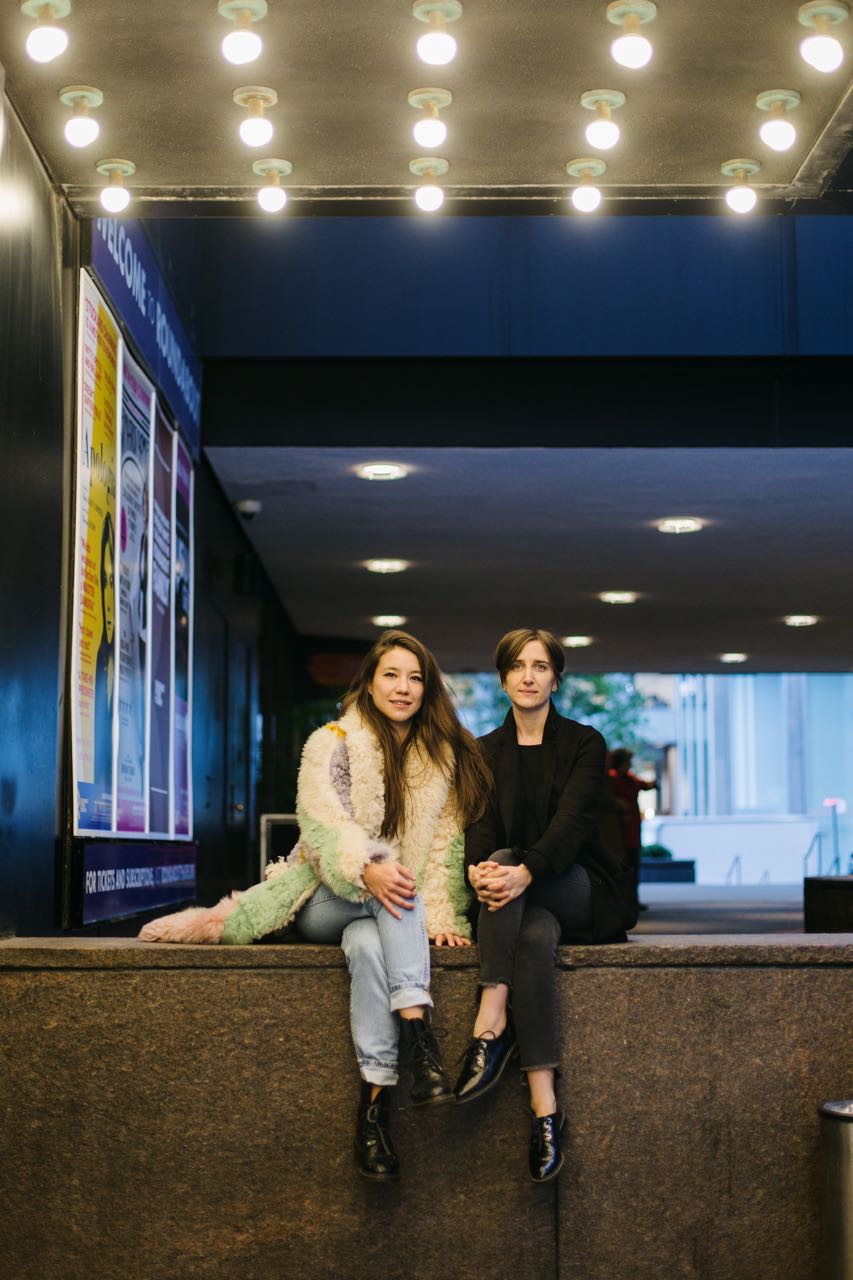
November 13th, 2018
In September, The Washington Post published a piece by Elizabeth Bruenig where she went back to her Texas hometown to investigate a rape that had occurred at her high school. The rape had taken place 12 years prior, to a girl she didn’t know—but who became school legend—a grade above her. All of these years later, she still remembered it and what the community had done—and not done. The following week, a 1993 Joan Didion piece for The New Yorker resurfaced. In the Didion piece, she went to Lakewood, California to investigate a series of high school rapes. Those two weeks in September were at the height of the Kavanaugh hearings. Both pieces became popular, I think, because they exploded the “he said/she said” trope to show how entire communities were implicated in these crimes. In each case, there was a specific victim and a specific perpetrator, but the stories included the web of white, middle-class social mores that continually complicates and confuses the lives of women and girls—the normal fabric of culture that maybe isn’t so normal, only common.
Now at the Roundabout Underground comes the play Usual Girls by Ming Peiffer and directed by Tyne Rafaeli, which explores what it means to grow up a girl in one of those normal, white, middle-class places in America. The story centers around Kyeoung, a young Asian-American woman coming of age in the ‘90s and early 2000s, and the messy, sometimes dangerous, sometimes exhilarating ways that sex and friendship and personhood meld and to form the moments that define us. It is a play that has deeply moved many of the women I know, which, to be clear, I mean as a compliment. It’s also the first show in Roundabout Underground history to sell out both its initial run and extension before it had even opened (it’s now extended again). I recently spoke with Ming and Tyne about developing the play, the experiences that are carried into adulthood, putting female sexuality on stage, and more.
Ming, what inspired you to write Usual Girls?
Ming: I started writing it in 2016. The play started in a very weird way. I was writing about something completely different. I knew I wanted to write about the way women are treated in the world, and particularly, I was I thinking about a workplace. [At the time] I was actually writing a play that was about Dov Charney, who is the former CEO of American Apparel who was known for being a misogynist and being abusive to the women that he hired and worked with, and who was profiting off images of the female body often in compromised and sexual positions.
Even though my intent going in was to be writing about the various ways women are harassed, abused, held back, and trained to behave in a certain way in this world, I realized, “Oh my God, I am centering my narrative around this terrible dude that I hate.” Even though I was planning on showing him in a very negative light, I realized that I was giving him a position of power even in my own work by centering a story around this person. I started to really examine why my initial impulse was to center a story, which I knew fundamentally I wanted to be about women, around this guy. I got really freaked out by that. And then basically went to a very, very personal place and this entirely different play came out.
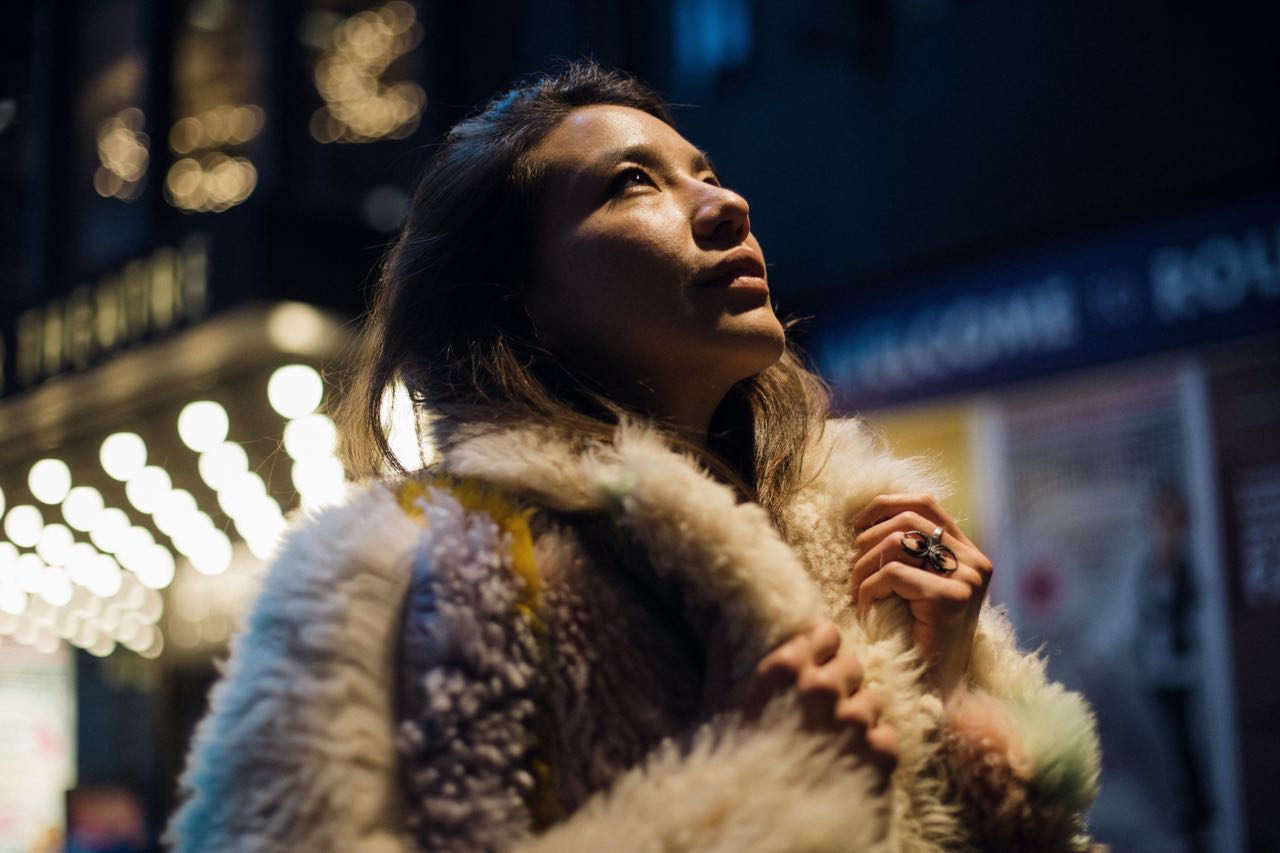
Tyne, when did you get involved and what was it that first interested you in the play? Did you feel like you knew how to direct it right away?
Tyne: We started working together at the Roundabout Reading Series about a year and a half ago. That’s when I first met Ming and first was introduced to the play, and then have been lucky to develop it over the length of that time until the production together. I got to know the piece very, very well and we developed it hand-in-hand. When I first read the piece, it struck me at a very personal level in terms of my own experience and experience of the world in the last couple years. I was most struck by how much joy there was in it. A lot of the conversations around this subject are very heavy, as they should be sometimes, but I found this work to be joyful and full of love and full of celebration, as well as tackling really difficult things very honestly.
I don’t know if I could say that I knew how to direct it straight away, but I certainly had a personal way into the material. And on a directorial level, it took shape in my brain very quickly in terms of the vibrancy, of the physicality, of how the space could work. Those things came very quickly as I was reading it. And then we’ve learned how to fine tune and finesse the physical production over the last couple months.
In the play, there’s an interesting balance between what’s shown and enacted and what’s told or implied, especially in regards to Kyeoung, where you have a younger and older version of her. How were the decisions made in terms of showing versus telling?
Ming: Part of that is residual from the original version of the play that was about Dov Charney. The one thing that remained, but shifted, was that I had interviews that I had conducted with women about their experiences that spliced up the play. Those were the only texts that I kept from that original idea. In the first couple scenes, when the children are younger, it’s so funny even though they’re talking about some very dark things and circumstances, and so it became very important to me to have an older voice come and reflect back. The way that those scenes work is because they’re nostalgic, because we’re watching these adults playing children, because we’re taking them back to certain times via the clothing and via music choices, and it became very important to me to not just rely on that and rely on the humor. It’s very easy to laugh off these things, and often that’s what I feel what happens even in our lives. Something fucked up happens and we laugh it off and we kind of make it seem okay. I knew that we needed to have sort of a disruptive agent. That was something I always felt very clear about. We needed to show that even these moments where people are laughing, the characters don’t quite realize how much they’re being affected by the things that are happening. Having an older character who’s then still grappling with the effects of those things became very important to me.
And then in terms of the stories that she tells versus shows, most of them were things that I felt like we’ve seen play out before. Like telling a story about virginity. I’ve seen people losing their virginity. For me, that was more something that worked within the timeline and it was, again, germane with all the other conversations that we were having. But I felt like there were more interesting, more nuanced conversations to be actually witnessing. For example, in the kid scenes, when Kyeoung is called a racial slur. Just telling that story already comes from a certain processed vantage point, and telling you that this is bad, versus mimicking the true experience that I had as a kid, which was I was having fun and then I got called this horrible name. It almost puts the audience in the same experience, because they’re having fun and then they’re like, “Wait. What? Why did that horrible thing just happen?” And that’s exactly how I felt when I was a kid and that happened. So it became [that] in order to get the audience inside of those experiences versus being told what that experience is.
Tyne: I actually discovered this Kierkegaard quote the other day (that I’m probably going to misquote right now) that pertained so much to the show we’re doing, which is, “You can understand your life by looking back, but you have to live it looking forward.” I was just so struck by that in terms of this young girl, as we see her growing up, she has to look forward in order to survive. But this older woman in order to understand why she’s at the place in her life that she is, has to look back. And those vantage points, the older and the younger, are two very, very different things.
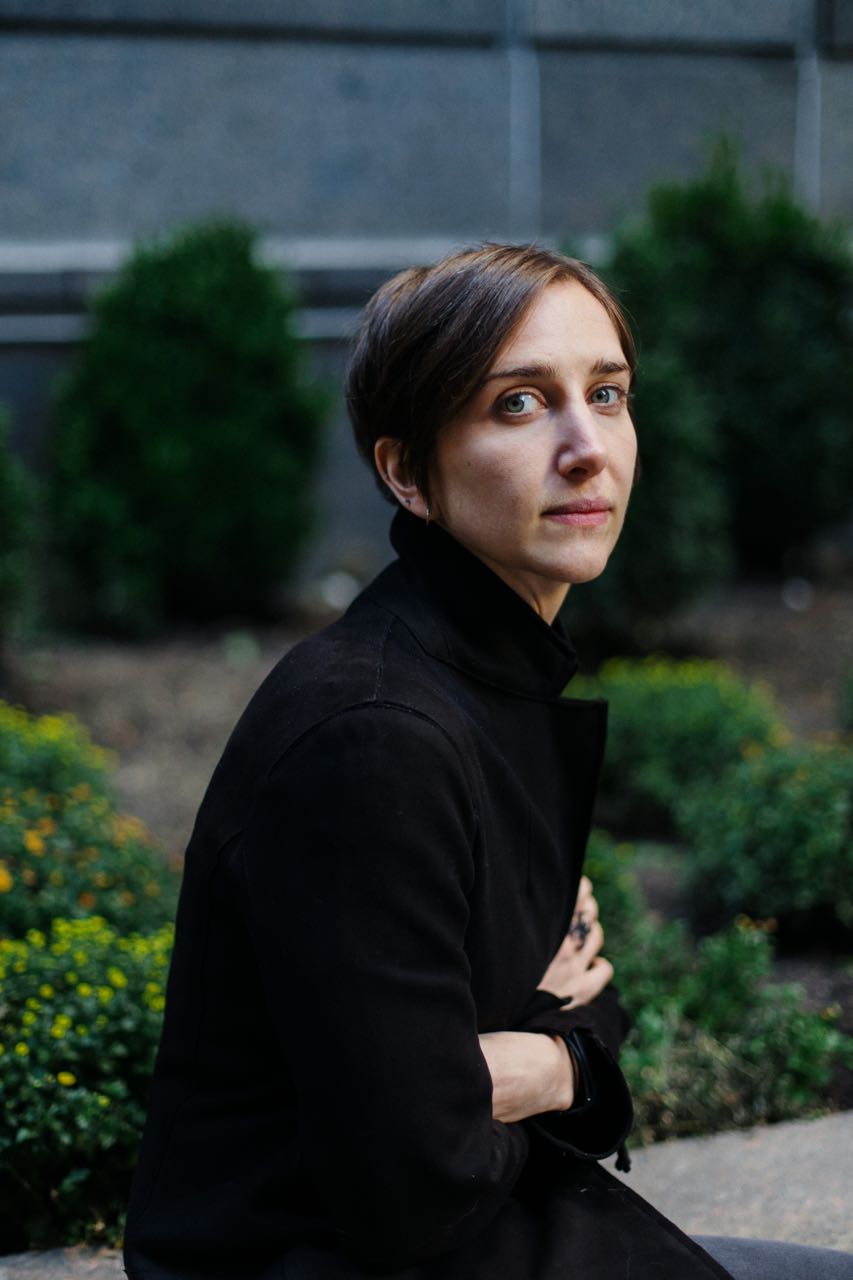
Was there a particular arc or moment in the show that, when you were first starting rehearsals for this production, you felt like, “I understand this,” but your opinion about it or your thoughts about it changed throughout the rehearsal process?
Ming: I think probably the relationship with the woman. She was always there, but it’s been a lot of us responding to the political moment that’s happening. And it became that we had this character who’s able to reflect back and not only talk about her previous experiences, but also interact with her younger self, so a question that emerged was, “When does the woman show up?” We located that it was always in very emotionally violent situations where she comes in and takes the wheel. One of the last scenes in the play between the two of them, which surrounds a violent act, was something that came out through the workshop process, and then the woman’s final speech came out of that. I think it just became much clearer to us. Because originally they were these interviews versus it actually just being about these two different selves finally coming together and meeting, and we were like, “What would be the catalyst for sort of the final meshing of that?” That’s how that final scene was born.
Tyne: I’m sure Ming engineered it to be this way, but when you first read those kid scenes, you’re taken so much by the humor and by the chaos of it all. I think something myself and the actors really discovered is that we’re watching these particular episodes for a reason. So we asked the Passover question a lot: “Why is this night different from all other nights? Why are we watching this particular episode?” And what I was so moved by is that Kyeoung, our lead character, starts the scene in one place and she always ends somewhere completely different. And those scenes, no matter how familiar they are to people, are pivotal moments in her life. So the thing I was struck by and that just kept deepening was that there’s a very precise structure and there’s a very powerful reason why we’re watching these episodes of this young girl’s life. In every scene she is irreparably changed.
One of the things that felt unusual to me about this piece and that I hadn’t seen much of on stage before, had to do with the way the female relationships are portrayed, particularly as they pertain to sex. It felt like they complicated the narrative of women being mean to other women, since that behavior often stems from cultural and societal influences. How did you develop that aspect of it?
Ming: The mean girls trope is the thing that I feel like we see so often, and I am upset when I would hear people say things like, “That’s just how women are,” or “That’s how girls treat one another,” instead of actually examining the reasons why. I would hear people basically say that that’s just in female nature, and I was like, “That’s not true at all.” It’s actually because of society and the societal kind of pressure that forces us to behave in certain ways. It became very important to me to not only hold up the trope of mean girls so that we can see it, but then to deconstruct it and point arrows to the other things that are causing this competition or animosity. I don’t think it’s that we’re born to tear one another down. I think it’s a survival mechanism.
Tyne: Scarcity of opportunity or of safety breeds competition and breeds infighting. And women have a scarcity for both opportunity and also1 safety.
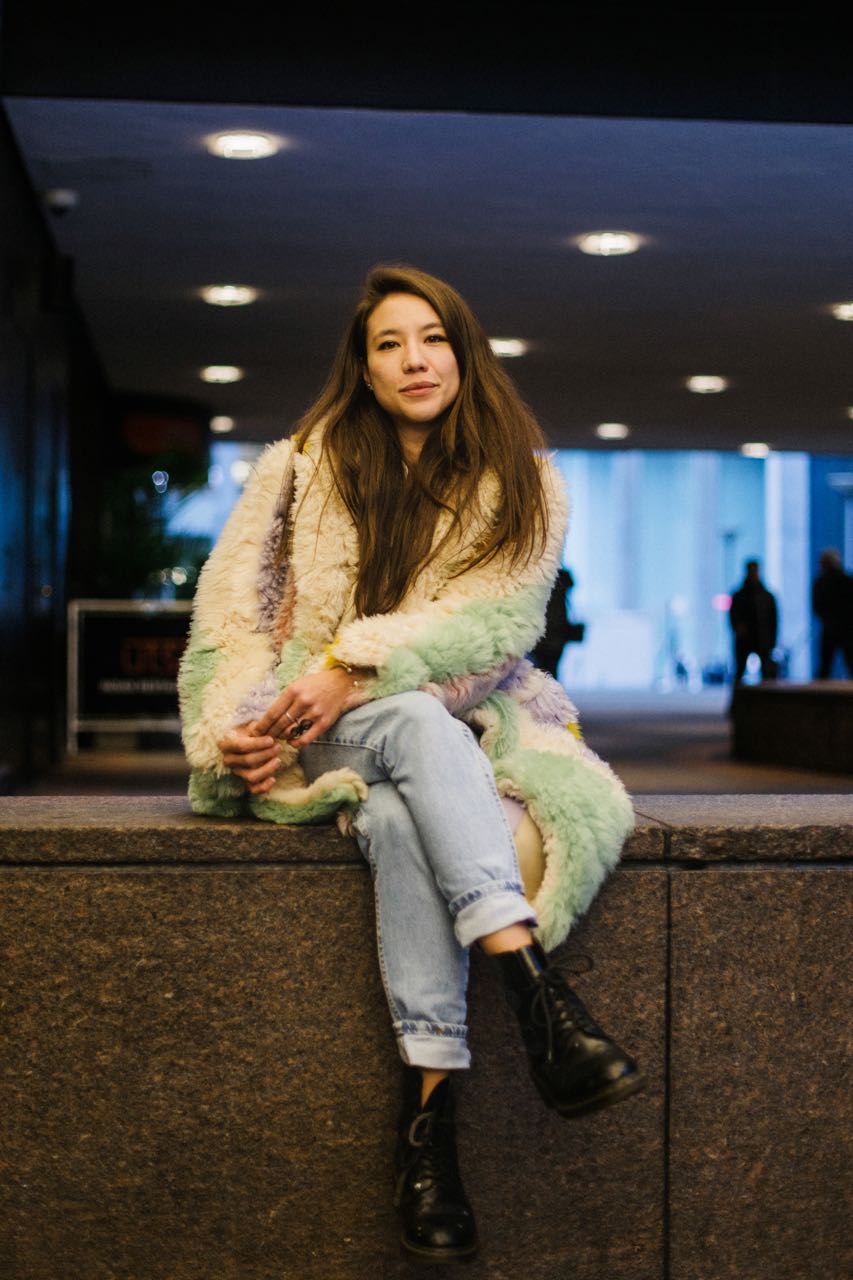
One of the other things that felt unusual was the role of the adults in the piece in the sense that they’re largely off-stage characters, other than Kyeoung’s father who shows up in one scene. None of the mothers are ever seen, they’re only referenced. But in the play and in life, adults are very complicit in some of the behavior. With that specifically, how do you decide what we see and what we hear about?
Ming: So much of the play is about where these seeds were sown originally that lead us to who we ultimately become. I felt like we could see who these parents are through the kids and through their psychology, through the stories that they tell, and we could see how profoundly they are being affected by their parents. I didn’t think I needed to see that. For me, it’s so present within their behavior. Rory even says that he’s gotten some of his racist ideology from his father. Anna is so not equipped to deal with the world because her mother has been trying to keep her and shield her so much, but then simultaneously showing other parts of her own life not realizing the profound effect she has on her kids.
I don’t think this was a choice that I made consciously, but now thinking about it, I also think when we have the adult opinion, you immediately go to that as the authority. Like if we had seen Rory’s dad telling him his beliefs about Asian women, immediately we’re in this sort of black and white bad dad, poor kid thing versus seeing how this kid has ingested and consumed that information and now, whether or not he even understands what he’s saying, he feels the need to project that into the world and uses that to assert power over these girls in this situation. I think it makes it more complicated and also more upsetting and sad that these kids, who maybe don’t even believe the thing that they are espousing, but because of the way that they’ve grown up, the way that societal forces are working on them, that they feel they need to behave in this way.
Tyne: We’re putting the focus on the consequences of parental action, as opposed to parental action itself on the whole. I don’t know if I’ve seen it proposed that way before.
Tyne, the last time we talked it was about you directing a few shows in a row that all had to do with sexual assault.
Tyne: And here we are again.
Since we last spoke, how do you feel you’ve changed as a director in that capacity?
Tyne: As we spoke about last time, I never had the intention of delving into this subject matter so deeply, and I will say that all the plays are very, very different, but it does make sense for me with the questions that I am asking of myself and of my community and of the wider world right now. It doesn’t surprise me that these plays are in my life, because they are engaging me in a conversation that I have great investment in. I’m still very much listening and processing how the culture and the world is changing. The last year and half has been really huge and significant in terms of how the conversation has developed. I don’t know what it is going to lead to, but I have learned enormous amounts by listening to people’s stories being told that would not have been told two, three years ago. That part of the human experience has surfaced in such a powerful and profound way that I don’t know how to define how it’s changing me other than that I’m still listening and learning and finding the conversations about power, in general, and how we manage that and what the responsibilities of that are, to be really transformative and really important.
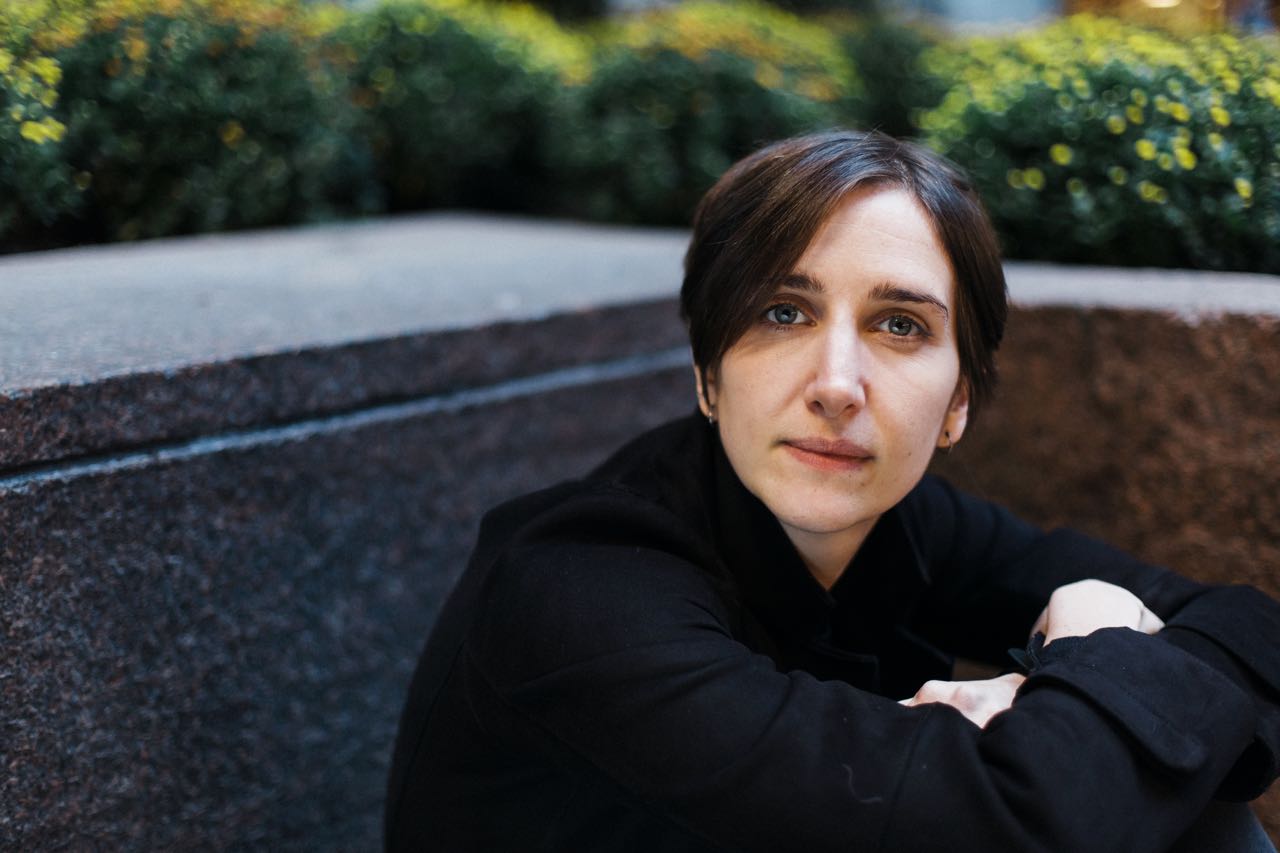
You have a cast of mostly young women and your lead actress, Midori Francis, especially, is asked to be pretty vulnerable in this. How did you guys go about doing that in a way where everyone felt comfortable? And how much did you think about the audience and teaching them to watch the play in a way that felt right and not voyeuristic?
Tyne: With this play, it was imperative that the space was incredibly safe. We had pretty rigorous conversations about that with the company at the beginning of the process. Not just because of a level of nudity and a level of sexuality that was needed for the piece. We had two men in the room and it was very important to me that they felt as included and that their points of view and their experiences were important, as well as the female experience in the room. There was a lot of conversation, a lot of sharing. We really were specific about picking the actors not just because of their incredible skill, but also for who they were as artists. More than ever, it was essential that they came into the room with a certain openness and heart and respect. And we were very lucky that that culture was created quickly.
In approaching some of the nudity or some of the sexual content of it, it was working very methodically and slowly so that everybody felt safe and comfortable, but that we were also honoring the danger and power of the pictures that Ming was describing in the script. It was this balance between safety for the artists in the room, but danger in what we were actually dramatizing on stage.
The interesting thing about the nudity in this play—and that I truly haven’t seen elsewhere—is that it’s not sexualized. That’s what’s interesting about the show meeting an audience, is that for the most part the nudity in the show is not put in a sexual context and that’s really singular. We just don’t experience the female body in a context that isn’t sexualized somehow. So seeing the female body in this other way feels very powerful, and has struck people really deeply and makes people feel certain things, because we’re just not used to it. When we see a female body in a sexualized environment, it’s so normalized that we actually feel comfortable. But seeing the female body in a different context is a very powerful and transformative experience.
Ming: A male colleague of mine came up to me and was like, “It’s incredible what you’re doing with the male gaze, because I’ve never been in a situation where I’ve seen a young woman nude and felt bad.” He was like, “It’s crazy, because you made me care so much about that body, about what that body goes through, and then seeing it in its entirety, not just the things that I want to pick and choose that make me feel good, but having to reckon with what a female body goes through over a lifetime and coming at it with that and not just, ‘Oh, this is for me, for my entertainment.'”
You both have touched on the current political moment. How was it being in rehearsal when the Kavanaugh hearings were going on and with sexual assault and harassment in the news so much? Have you felt it’s ever been a double-edged sword?
Ming: The timing of this play has been really interesting. We did a reading of it, and then a week later #MeToo happened. At the beginning of #MeToo people were kind of excited, feeling like there was going to be a lot of change happening. Then it felt one step forward and two steps back. In terms of a double-edged sword, it’s upsetting that we’re here, but the thing that has been great for me in this process is I don’t know what I would have been doing if we hadn’t been [working]. I would have just been in a really depressed, sad spiral, just refreshing social media. But it’s been so healing to be working with brilliant, open, generous people whose minds are geared towards change. And so, having had this safe space to feel like we’re actually doing something in the moment and being able to comment on what’s happening has felt very fulfilling, artistically and emotionally. The thing that’s been so great is doing this work or seeing What the Constitution Means to Me and seeing that there are people who are actually talking about what’s happening and we’re actually espousing ideas and trying to create alternate paths that we can choose.
Tyne: As we came into this rehearsal process, we were very much working on the end of the show. It was still a little up in the air how we were going to end it. And what that line of investigation meant for me, and for the entire company, is it forced us to try and formalize or articulate what our point of view was about this conversation, which is very hard, because we’re a culture that is so in flux right now. As I said, it’s a lot of listening and a lot of learning. Nothing’s black and white right now. Everything is gray. But if you’re putting on a play, you have to have a point of view. So those conversations were fascinating, about what was going on in the world and how that was influencing how we wanted the play to end. What is our point of view as to where we are in this conversation right now? That’s when you really do feel grateful to do this job. We can take what is happening in the world and bring it into the room with us and try to understand it better.
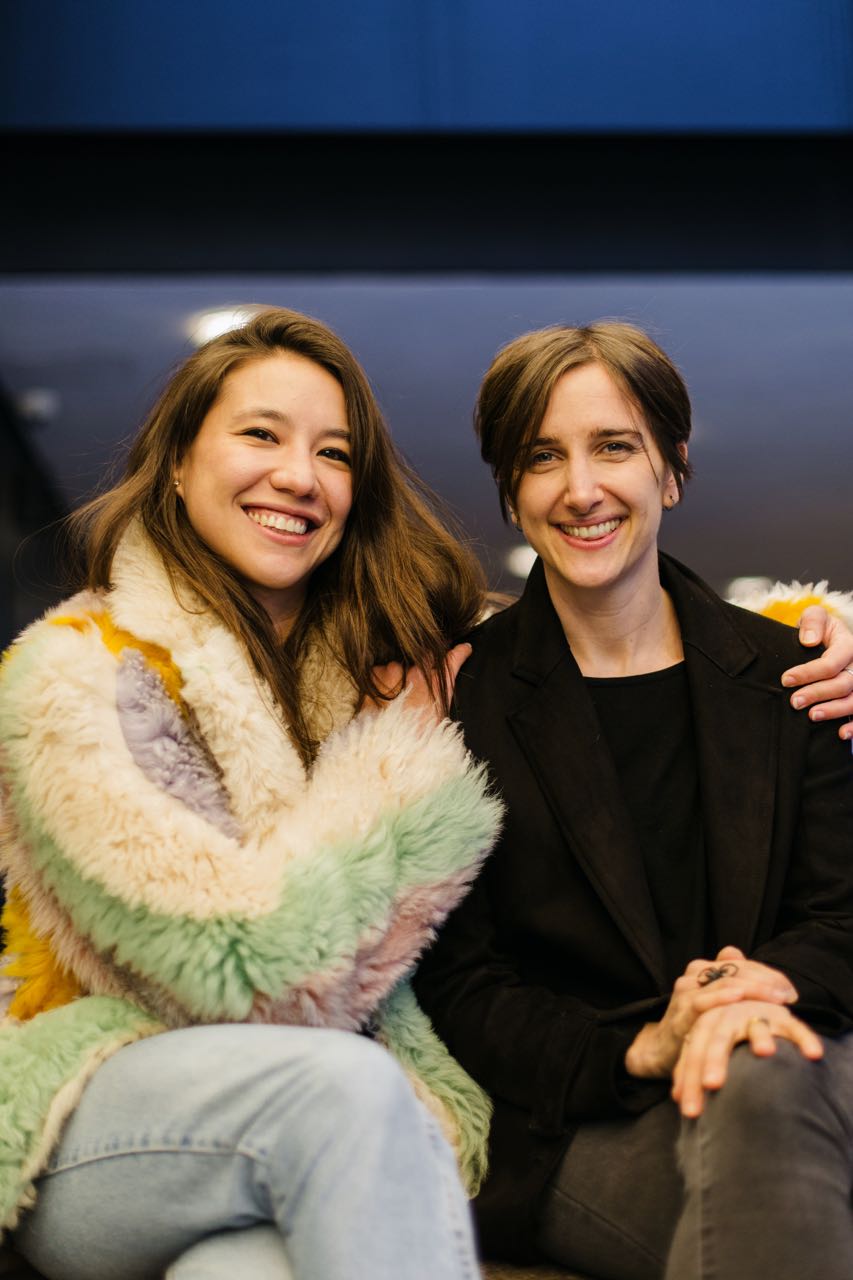
What do you hope audiences take away from the show? What do you hope the conversation is that they leave having?
Ming: I think it really depends on who is seeing this, because I think a lot of people have very different reactions to this. But I just hope that people leave understanding more about what it means to be female-bodied in this world. What are the types of things in terms of media, in terms of speech, in terms of legislation that are affecting those who are female-bodied in this world? And for everyone to come away reflecting on all of these things that seem to be so commonplace and why are they commonplace, and what can we do to change the culture, to make it safer for everyone regardless of gender moving forward? What are the conversations we should be having? Do I need to reach out to someone from my past? I want people to come away thinking about not only their behavior and participation in the system, but what are the ways that, if we can identify what the issues are, what is the next step?
Tyne: That is exactly what I want them to walk away with. And I would only add that I think the power of this piece of writing is the fact that those things that Ming is describing, you get it through laughter and there’s so much joy. The laughter and the joy in it opens the audience up for a transformative experience, and it’s an emotional way into that conversation and all that new awareness, as opposed to intellectual. And that’s really probably the most powerful experience we can provide, is an emotional one.
[Editor’s Note: Disclosure, I’m a member of the Ambassador’s Council of GenR at the Roundabout]

